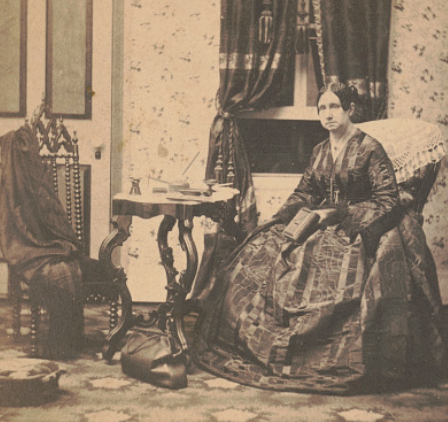“If you believe people have no history worth mentioning, it is easy to believe they have no humanity worth defending.”
- William Loren Katz, Historian
For years, I have scoured the internet for disability history curricula. There are a few strong lessons scattered among a variety of sites. For instance, the Disability History Museum features seven well-documented lessons on 19th century reformers for grades 11 and 12 and college. Facing History and Ourselves offers extensive documentation and text-focused lessons on the American eugenics movement and its terrible impacts in Nazi Germany. CitizenU offers a fine lesson on Nellie Bly and her 1887 exposé Ten Days in a Madhouse. Find links to many primary sources and these collected lessons at the Emerging America portal: Disability History through Primary Sources.
Since 2016, more than 500 teachers have completed Emerging America’s workshop/graduate course Accessing Inquiry for Students with Disabilities through Primary Sources or the parallel course on teaching English Learners. We are proud to host a growing number of accessible lessons on disability history arising from those courses. (As of today, there are seventeen lessons posted; more are coming soon.) All lessons incorporate a Universal Design for Learning framework and a range of specific strategies and tools for accessibility. Topics range from the founding of schools for students with disabilities in the early 1800s to 1990 passage of the Americans with Disabilities Act. Lessons address 2018 Massachusetts standards from elementary grades to high school.
State Standards Summary
Parallel to efforts to increase the supply of disability history lessons, a growing number of states are expanding the range of topics required in state standards. Working with veteran teacher and Emerging America Teaching with Primary Sources Coach Wendy Harris, we recently scanned standards from all 50 states to learn how they address disability history.
- Nine states include the Americans with Disabilities Act. Several of these link the study of Disability Rights to post-WWII struggles for civil rights.
- Connecticut and California describe strategies to integrate Disability History into the curriculum. Oregon includes people with disabilities in a charge to study contributions by a number of groups.
- Three states include “eugenics,” including Virginia and Massachusetts which both require students to examine the 1927 Buck v Bell Supreme Court decision.
- Texas and Massachusetts are among a few states that include disability in discussion of Second Great Awakening reform movements.
- Alabama includes Helen Keller in a list of “modern women” of the early 20th century. (Birthplace of Keller, Alabama features her portrait on the state quarter.)
- I am hopeful about North Carolina’s newly approved, more inclusive standards.
- Find the robust list of Massachusetts standards on disability history with links to the lessons that address them on our page Model Lessons on Disability History.
- Still, thirty-one states make NO mention of “disability” in history standards. (Four of these states mention “disability,” yet only in the context of personal finance and disability insurance, with a couple including “disability” in the study of psychology.)
For a current list of states with disability history requirements and other support policies with links to many of these, see our Learning Standards page.
Call to Action
The National Consortium on Leadership and Disability for Youth reported (date uncertain) that 23 states adopted laws or resolutions calling for observance of Disability History Month each October. The Easterseals Massachusetts Youth Leadership Network launched the #teachdisabilityhistory campaign and advocates for curriculum and increased exposure to the subject. Join the effort by reaching out to legislators and state education agency staff in your state to share a list of vital standards.
We welcome updates and corrections to this summary! Contact Rich Cairn: rcairn@collaborative.org.
See also my 12-2019 blog post, “Why Teach Disability History?”




